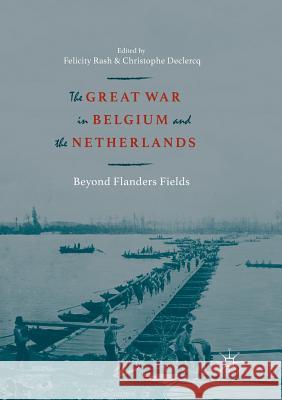The Great War in Belgium and the Netherlands: Beyond Flanders Fields » książka
topmenu
The Great War in Belgium and the Netherlands: Beyond Flanders Fields
ISBN-13: 9783030103163 / Angielski / Miękka / 2018 / 226 str.
Kategorie BISAC:
Wydawca:
Palgrave MacMillan
Język:
Angielski
ISBN-13:
9783030103163
Rok wydania:
2018
Wydanie:
Softcover Repri
Ilość stron:
226
Waga:
0.30 kg
Wymiary:
21.01 x 14.81 x 1.32
Oprawa:
Miękka
Wolumenów:
01
Dodatkowe informacje:
Wydanie ilustrowane











